Art Calendar, Media, 12 March 2023, by Rose Fedi
Margaret Tait Award winner Andrew Black, interview about "On Clogger Lane." The film is now on view at The Tetley, Leeds, from January 20 to May 14, 2023. Inspired by pioneering Orcadian filmmaker and poet Margaret Tait (1918-99), the award recognizes experimental and innovative Scottish artists.
An exclusive interview.
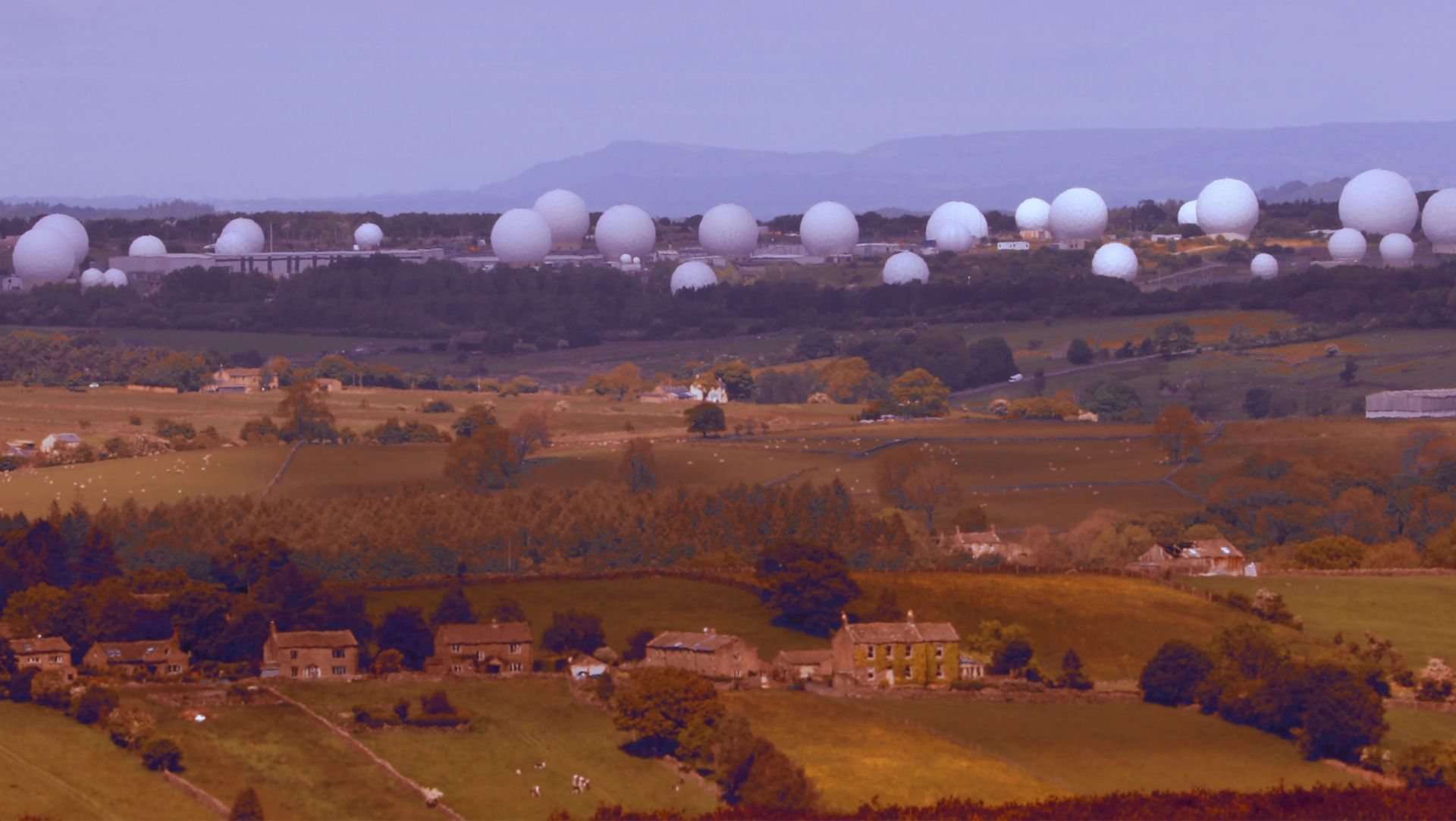
Andrew Black, ‘On Clogger Lane’, 2022. Courtesy of the artist.
A Northern English valley with green rolling hills and lush trees is dotted with ruined stoned buildings and intersected by a narrow road lined by dry stone walls. 3 cars drive along the road, one black, one red, and one blue.
The foliage has hints of burnt brown, red and yellow. Looming large on the horizon are white surveillance radomes, the sky is dark grey behind these huge geodesic domes.
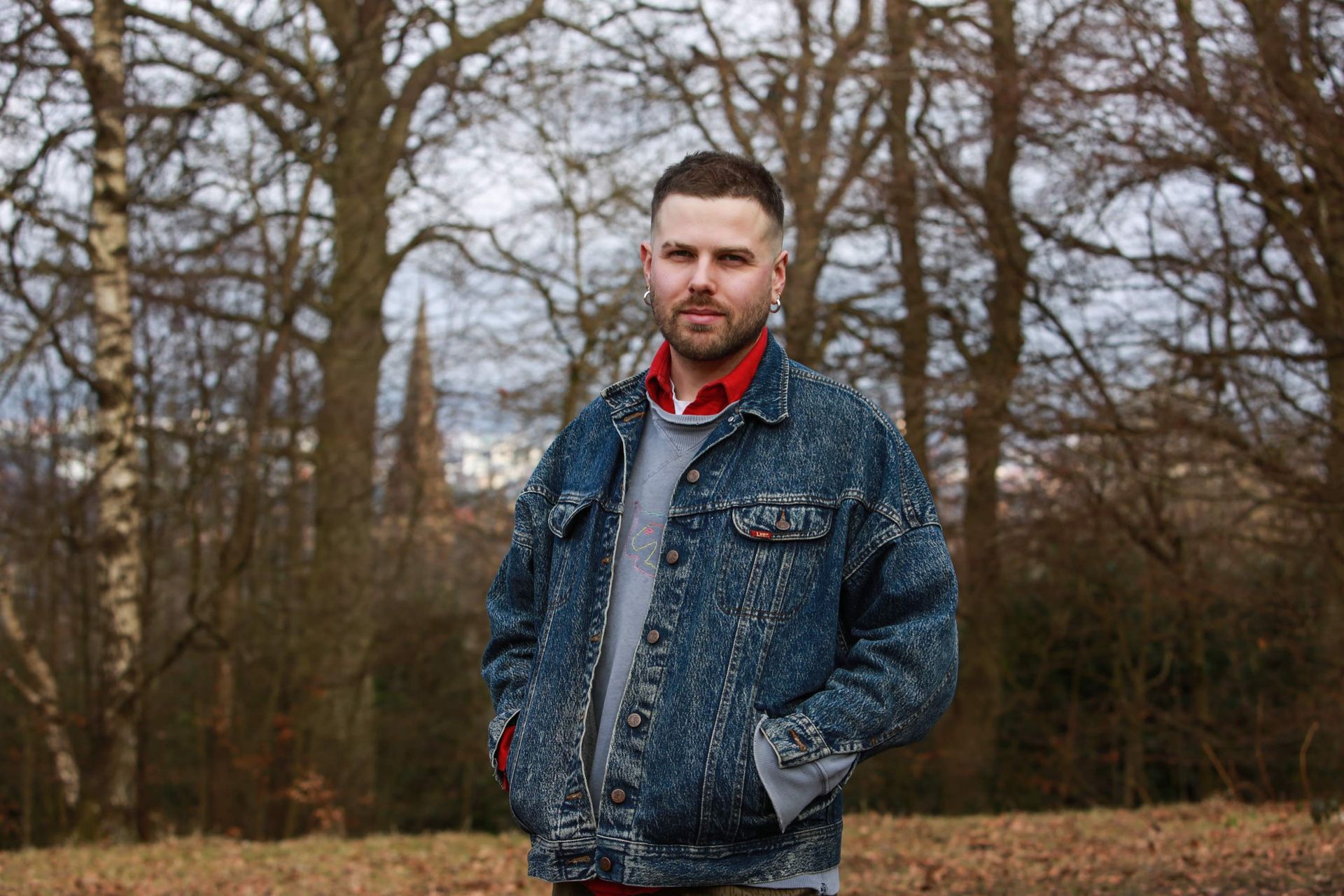
Andrew Black Photo by Erika Stevens
Art Calendar, Media, 12 March 2023: Andrew Black's Margaret Tait Award commission "On Clogger Lane" premiered Feb. 21 at Glasgow Film Theatre. For those unable to attend the premiere, an exhibition of Andrew Black's work, including this film, will be on view at The Tetley, Leeds, from January 20 to May 14, 2023.
----
On Clogger Lane explores how the infrastructures of capital have transformed the topography and social relations of a rural valley in the north of England over generations. The film meanders through a landscape dominated by a satellite monitoring station, flooded by reservoirs, riddled with mines and quarries, and haunted by the traces of previous inhabitants. On Clogger Lane features conversations along with archival footage and film music to explore the points of contact between passivity and protest, public and private, past and present, all converging on the same patch of old land.
Launched in 2010, the Margaret Tait Award is commissioned by LUX Scotland in partnership with Glasgow Film and supported by the National Lottery through Creative Scotland. Inspired by pioneering Orcadian filmmaker and poet Margaret Tait (1918-99), the award recognizes experimental and innovative artists working with the moving image. The prize is awarded annually to a Scottish-based artist who has produced a significant body of work in the last five to ten years, is recognized by their peers for their contribution to the artistic field of the moving image, and can demonstrate that the prize will have a significant impact on the development of their practice.
An exclusive interview with Andrew Black.
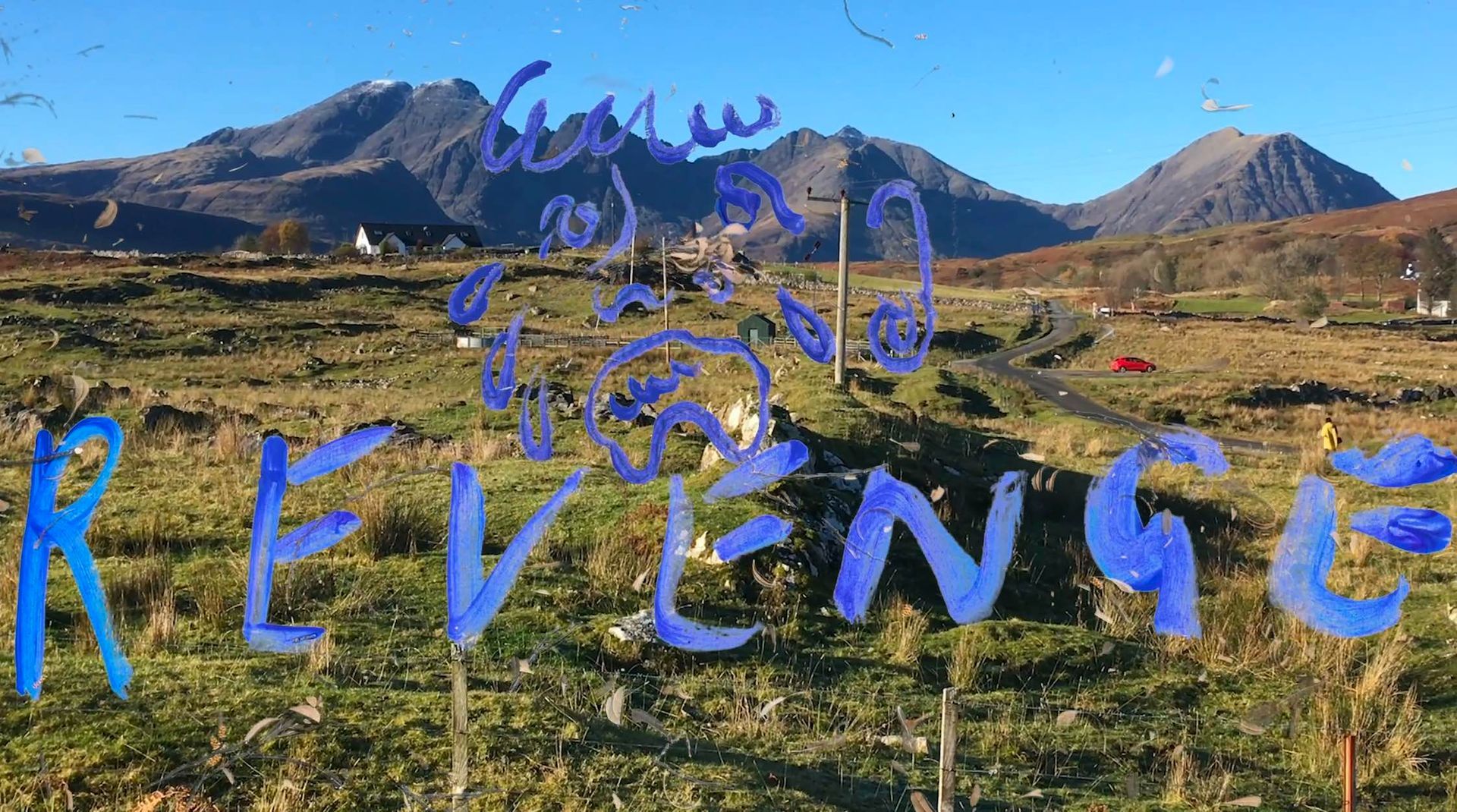
Andrew Black Revenge Fantasy Still ©Andrew Black
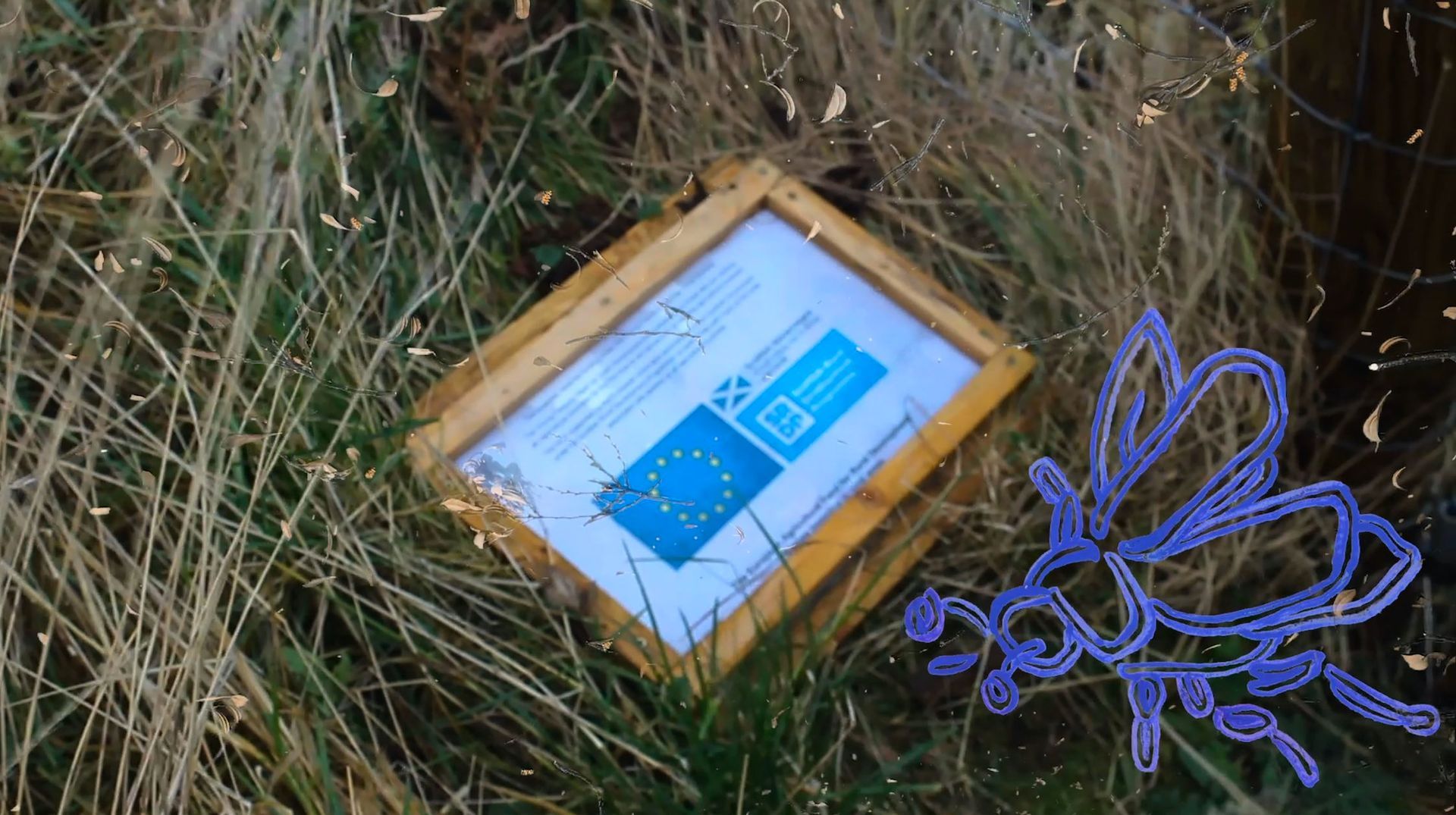
Andrew Black Revenge Fantasy Still ©Andrew Black
Read also
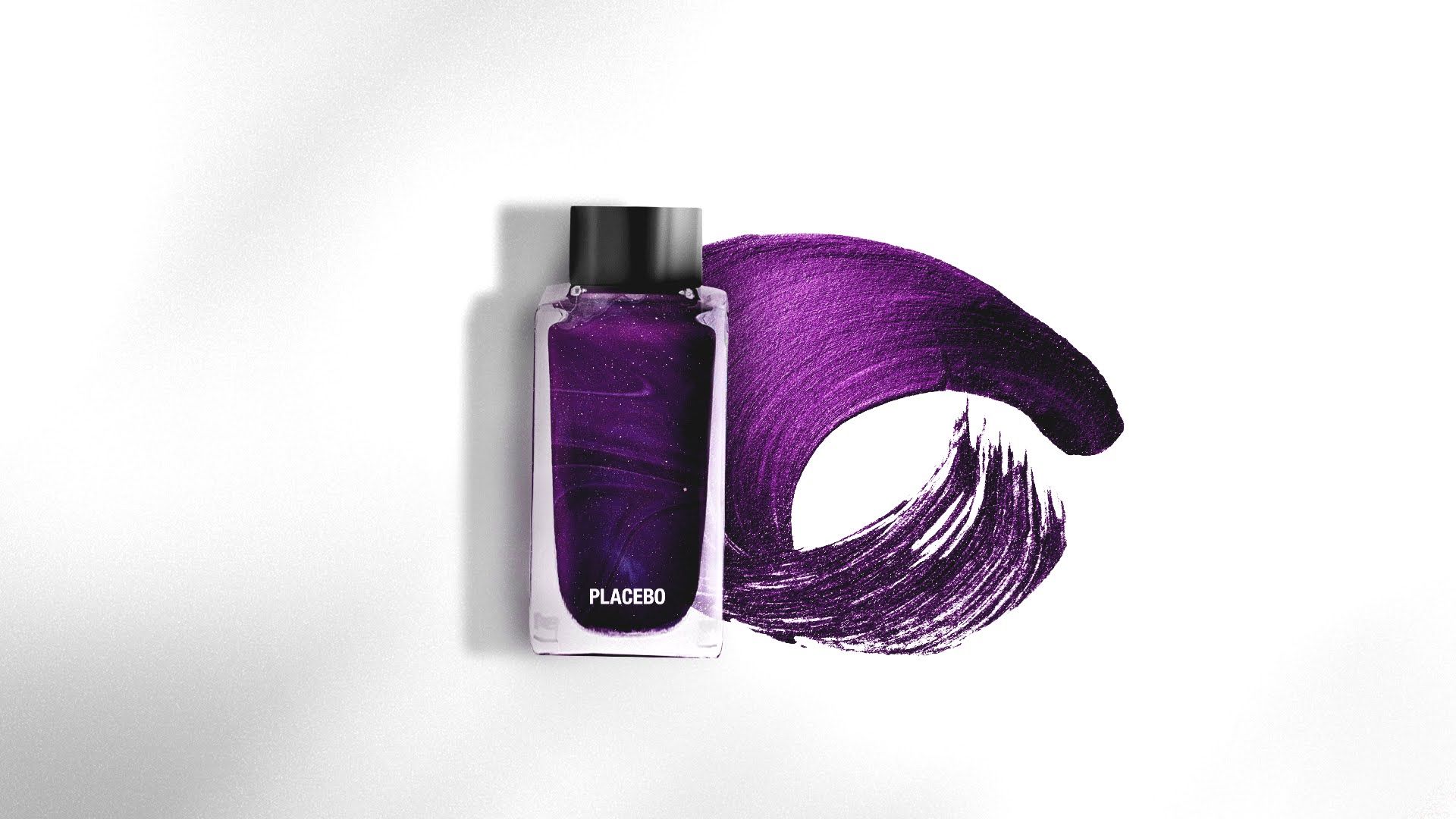
Stuart Semples colour Placebo ©Stuart Semple Studio
Art Calendar, 4 December 2022
Rock band Placebo X Stuart Semple: limited-edition vinyl and an entirely new colour. An exclusive interview!
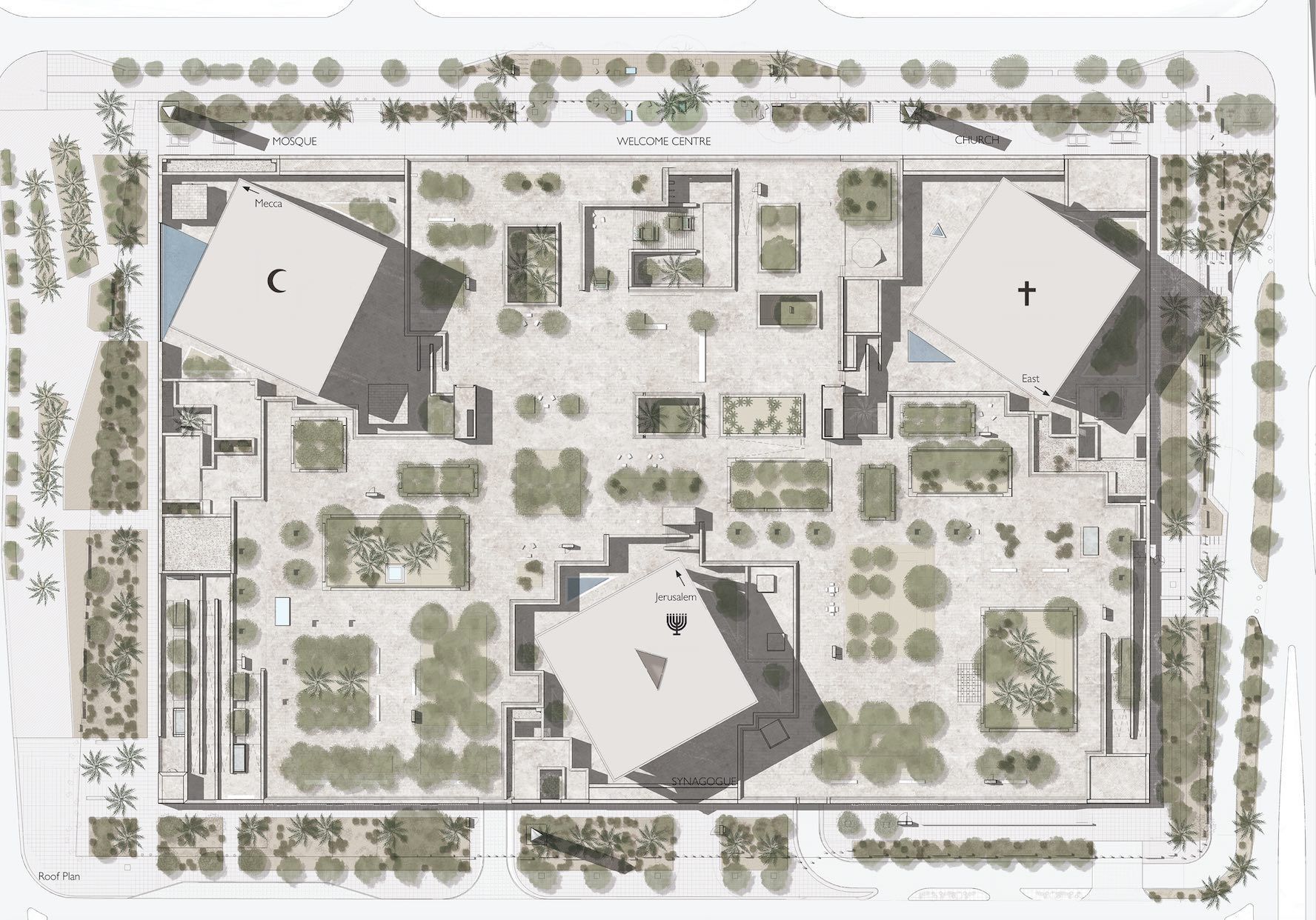
Photo: Dror Baldinger Credit Adjaye Associates
Art Calendar, Design, 10 March 2023
Abrahamic Family House Peace Project. The most important design element of the buildings is sunlight.
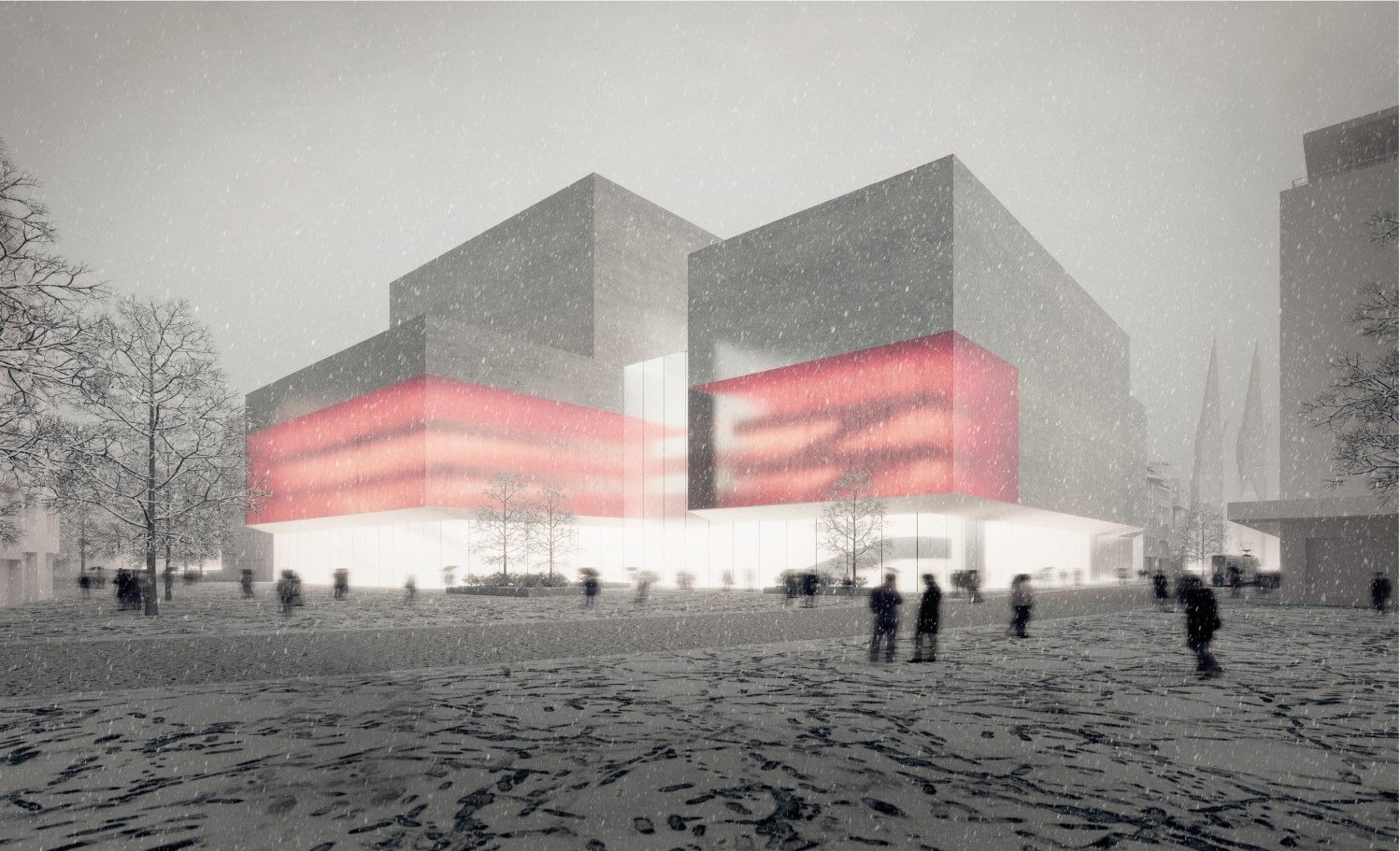
Could this be the new Düsseldorf opera house? ©HPP architects
Düsseldorf, February 15, 2023
Düsseldorf, capital of North Rhine-Westphalia will receive the opera house of the future.
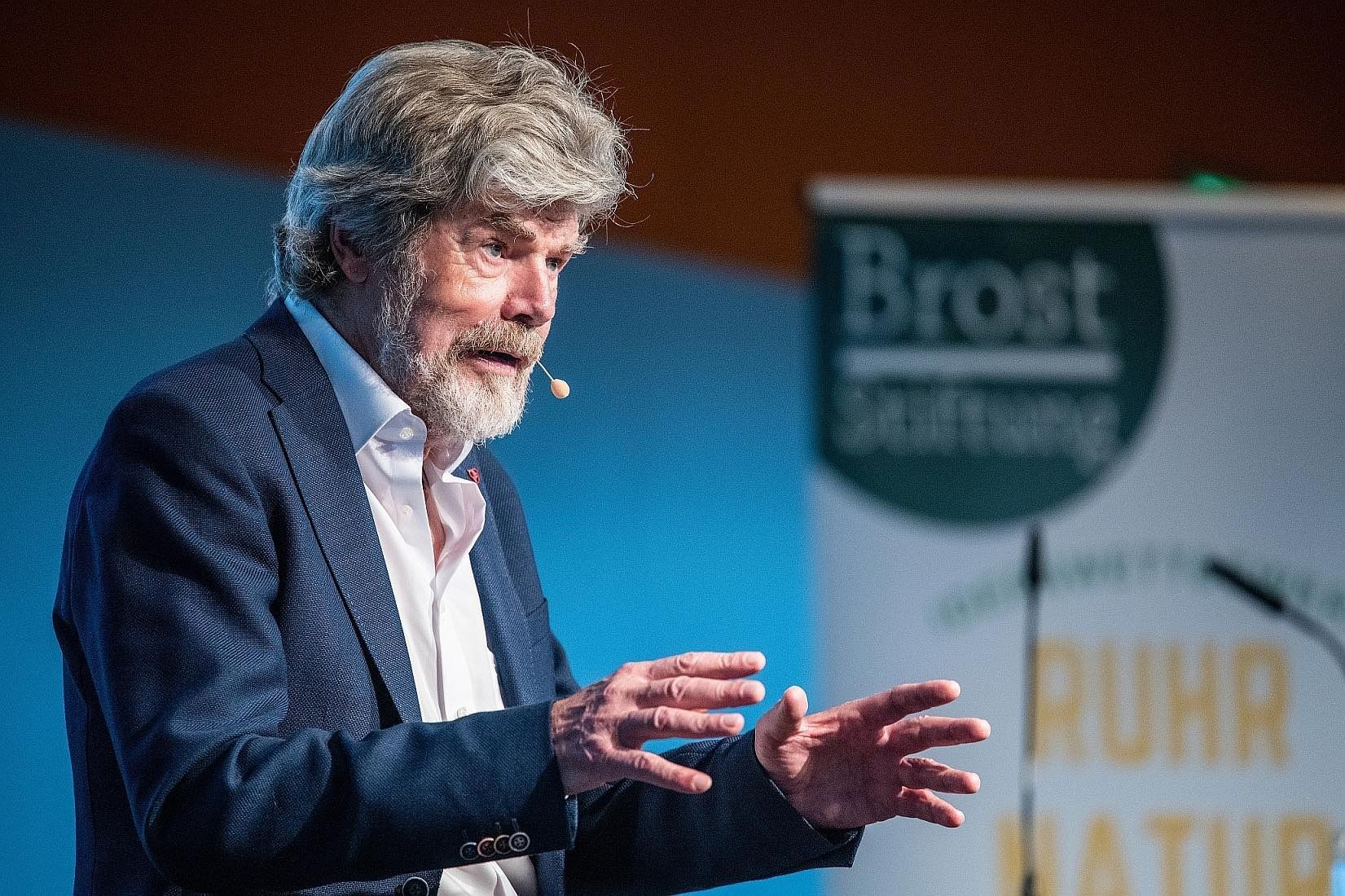
©Broststiftung
Düsseldorf, Environment, Feb. 26, 2023
Exclusive interview with Mountaineering legend Reinhold Messner
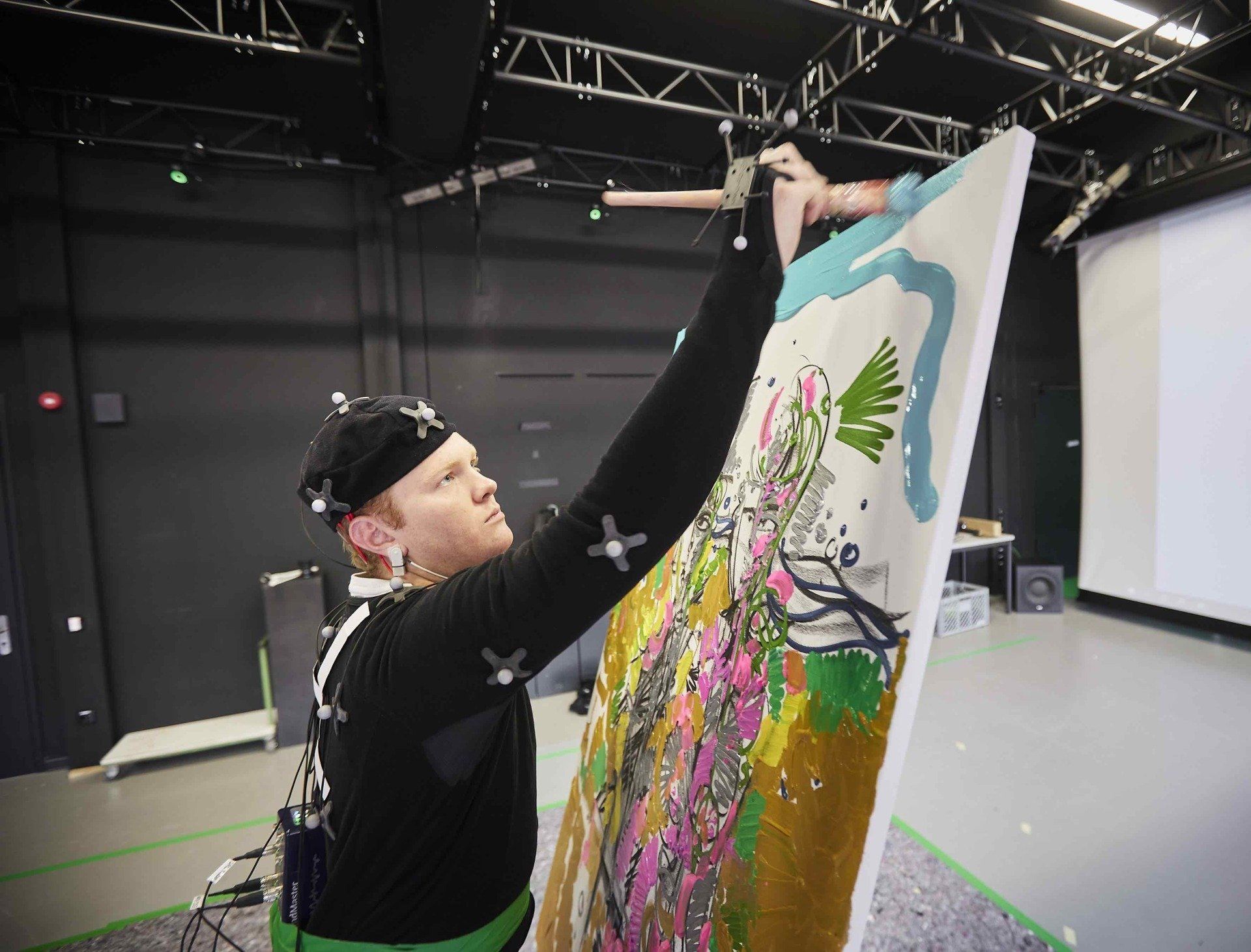
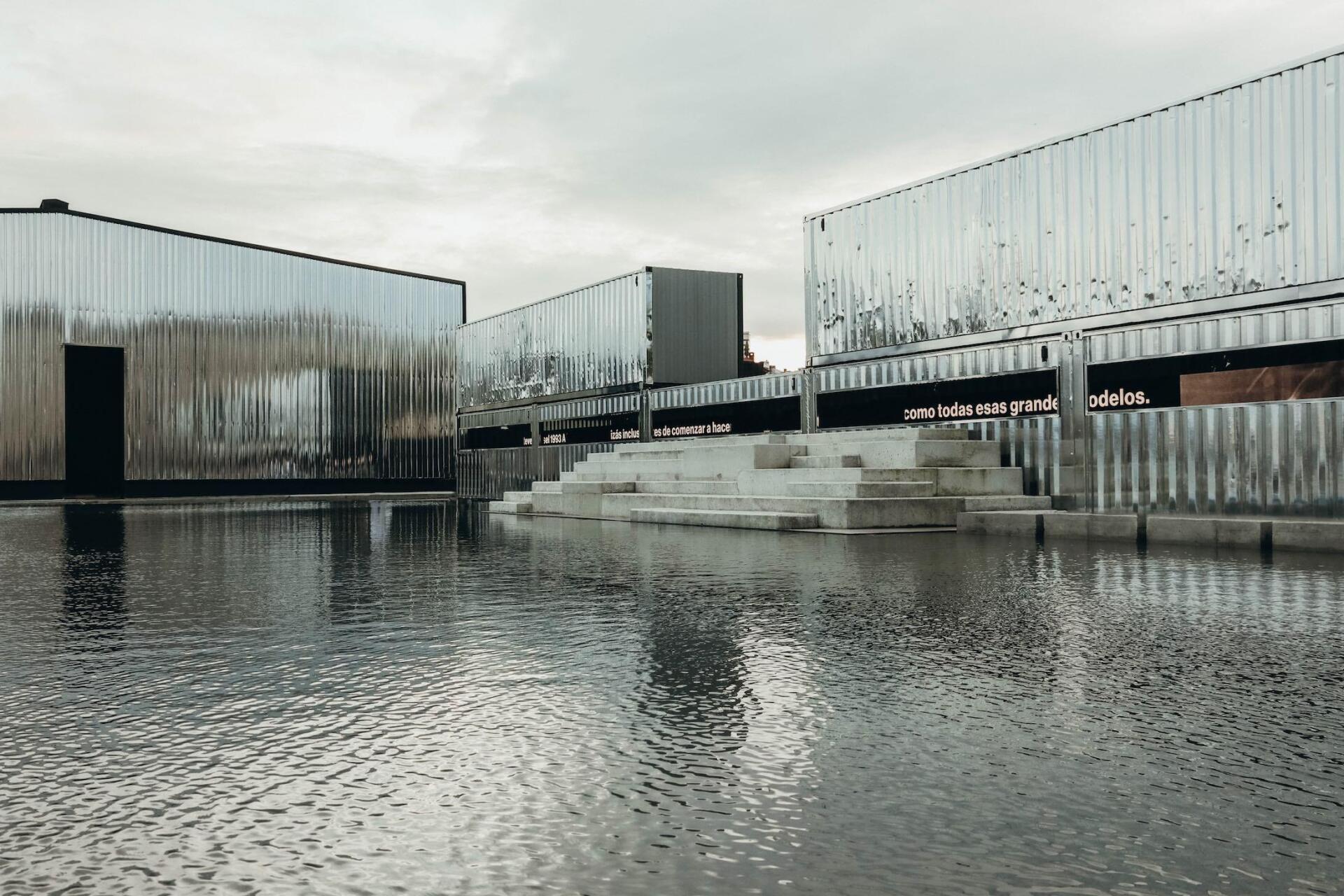
"Steven Meisel 1993 A Year in Photographs en A Coruña" ©Justin Paquay
Art Calendar, 5 December 2022
Marta Ortega Pérez Foundation:
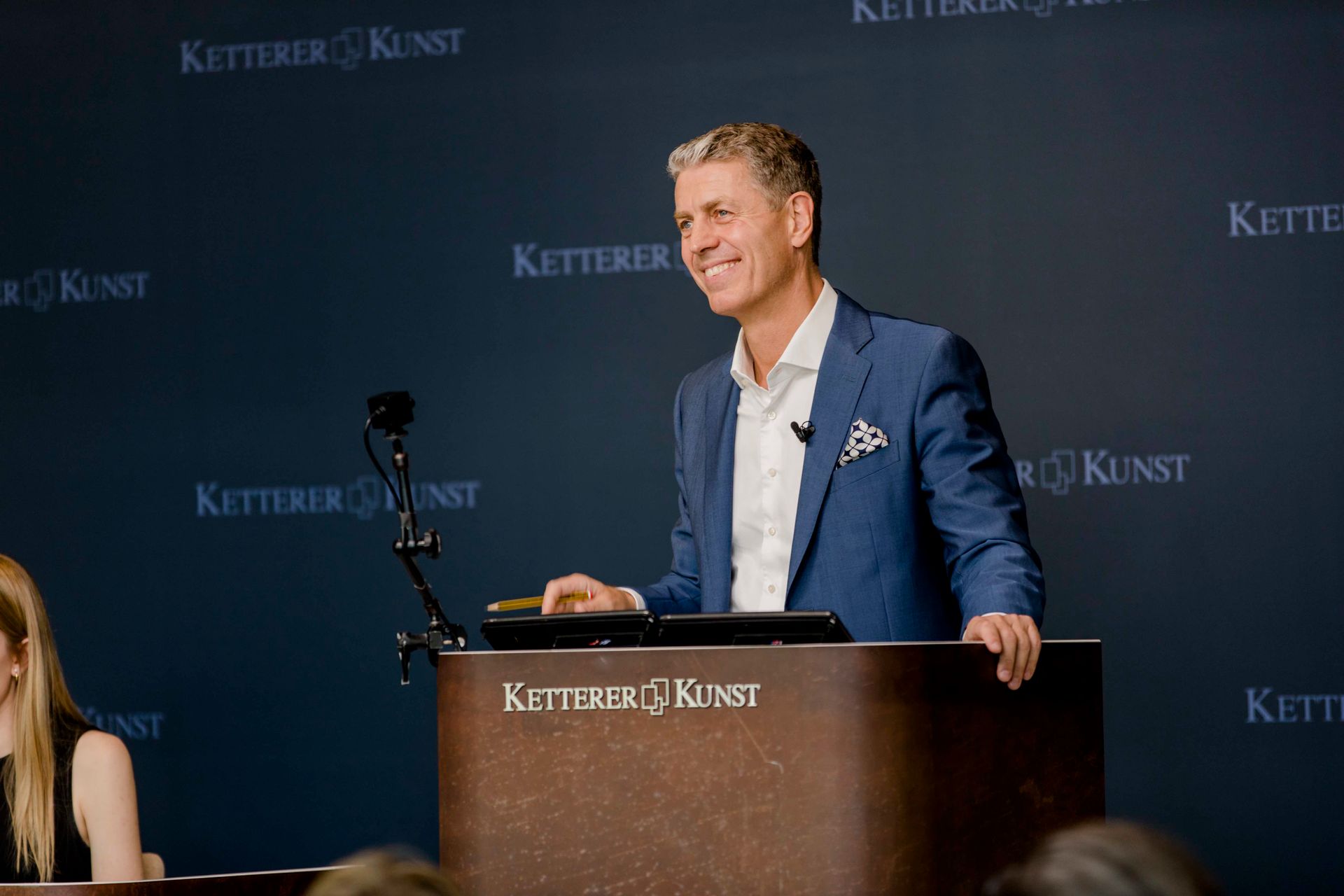
Robert Ketterer at a summer auction in 2022, LaRocca ©Ketterer
Art, Personalities, 6 February 2023
Robert Ketterer, exclusive interview.
Alethea Magazine: What do you hope your film will do for its viewers and can you also explain the title to the readers?
Andrew Black: I wanted the film to feel like a slightly hallucinatory journey through a familiar but haunted landscape. It is about the Washburn Valley, a small area of rural Northern England near where I am originally from. Clogger Lane was an old road that ran through the mill-village of West End. Along with the church, dwellings, mill buildings, farms and graves, the lane vanished underwater in the 1960s, when the upper Washburn was dammed to create Thruscross Reservoir, the fourth large reservoir in the valley. This means that a substantial part of the old landscape is now underwater, along with its traces of human habitation and endeavour, accumulated over millennia. The title is meant to suggest a sort of meandering journey along the submerged country road, through these weird and eerie spaces in which specific traces of the past, and of the future as well, can be stirred up.
How has the landscape of the Washburn valley changed? What observations have you made? How is the region developing at all in the current political and economic situation?
Andrew Black: One of the most striking local features is the huge military installation at Menwith Hill, a surveillance station occupied by the American National Security Agency, which gathers information from satellites, including private phone, text, email and digital communication information from ordinary people’s devices. It was established during the Cold War and is an obtrusive piece of dystopian architecture in the middle of all this quiet agricultural land. Groups of people, primarily local women, opposed the station from its early days, and have staged and sustained various acts of protest, trespass, sabotage and resistance there over decades, though the station is still expanding, and very little protest still occurs there (some does). In the film I’m trying to tie this nightmarish presence in with some of the other, historic encroachments of the forces of capital into the land and its communities, and look at some of the ways in which these have transformed both the landscape and people’s lives. All of these themes are explored in the film through anecdotes told conversationally by local people.
Despite the acts of resistance to the base, the area is today broadly conservative, and I wanted to contribute a slightly disruptive portrait of the British countryside that re-asserts that it has formerly been, and in some ways still could be, a site of unrest and struggle.
What is the current situation actually in Glasgow, where you are based? How do you see your role as a filmmaker for the region?
Andrew Black: I’ve been in Glasgow for more than 13 years but have made most of my recent work in rural Scotland and Northern England. A few years out of art school, I joined the committee of Transmission, which is maybe a good example of the kind of anarchic, collectively-run, sometimes cliquey space that characterises how the Glasgow art scene is often thought of. A lot of activity used to, and to some extent still does, go on outside of the main funding streams and institutions, and it was quite possible for people to make work and put on shows, parties or gigs in project spaces or in their own flats for not much money. There has been a lot of crossover between the art scene and activist organising, too. But Glasgow has changed a lot in the time I have been here, and parts of town that it seemed could never gentrify have completely transformed and people have been priced out. The huge presence of artists like myself must have had a significant role in this. However, it’s happened alongside a shrinking of opportunities for artists to be self-organised and do things independently. Most artists aren’t paid much (or at all), and public funding for the arts in Scotland is being dramatically slashed. It currently seems a hopeless future for the creative sector.
All this is exacerbated because we are at the meeting point of several crises in the UK, one of which is a crisis in housing. I worked on a film in the the Highlands last year, part of which looks at how this situation is affecting communities there. As people from urban and suburban England and Scotland, attracted by a romantic idea of the place, are easily able to buy properties and land that are now completely unaffordable for locals - especially younger people - the area is losing its social spaces, and its vernacular culture, language and social identity.
But there are various histories of resilience and collectivity to be paid attention to, including resistance to external extraction from/reorganisation of communities and land - something equivalent has certainly existed in Glasgow, and could hopefully translate to the current situation. I’m interested in where this exists elsewhere as well - even in unlikely places such as conservative rural England. My recent few projects have been trying to pull at these threads a little.
Andrew Black: Can you tell me something about your path into the world of film? What else would you like to achieve?
Andrew Black: I studied painting at art school and then worked in kitchens whilst trying to pursue an art practice on the back-burner. I started making videos because it was a way of juxtaposing and collaging ideas relatively quickly, compared to my laborious painting practice. It was also more social - each film I’ve made is to some extent a collaboration with the people who are in it - increasingly so, as I’ve been making films that are more and more documentary-like.
The films I’ve made are very DIY, facilitated by favours, and with the help of friends and family. There are many artists in Glasgow who make moving-image work which I’m really into - it’s a good town to make videos in, as there’s a lot of skill-sharing and sharing of equipment and resources if you are connected to other people who are doing similar things.
Filmmaking can be a way of recording how things feel for certain people at certain times, but it can also be a tool for exploring or imagining other ways that things could be, and that’s what attracts me about it. I would like to be able to make films that open up a conversation, or bring pre-existing conversations into unusual contexts, or that maybe make audacious connections between things.
What does the Margaret Tait Award mean for your career?
Andrew Black: Margaret Tait herself sustained a film practice throughout her life with very little funding or institutional support. The Award, now reframed as a Commission, is a big deal because opportunities for artists of this scale are still sadly very few and far between. Being nominated and shortlisted is a vote of confidence in your practice from your peers, so I do feel extremely grateful from that perspective. The award has meant that I was able to connect with other artists’ moving-image communities and archives, and for the first time work with editors, and so in that respect it has certainly widened my skillset and expanded a network of possible collaborators. The film has been technically finished to a higher standard than my other work.
However I wish it was more possible for more people to develop their ideas and practices in this way without the competitive aspect of the award. It would be great if there was a more stable, properly funded, better-supported ecology of creative practitioners able to work without having to bank on getting shortlisted for something, without being in direct competition with their peers for opportunities, and without the pressure to propose the type of work that they think will be deemed fundable based on current trends. These conditions do not encourage resilient, inventive and mutually-supportive creative communities. Glasgow is quite remarkable in that there is still some semblance of this, despite the pressures and cuts facing the arts.
So as far as how I see the award in relation to my own practice - I just hope I will have the opportunity to continue doing the kind of work I have been lucky to do over the past couple of years, because although by and large it pays about the same, it has been more rewarding than washing dishes!
----
Discover more about the Margaret Tait award:
luxscotland.org.uk/programme/projects/margaret-tait-commission
By Rose Fedi
German version
Art Calendar, Media, 12. März 2023
Margaret Tait Award Preisträger Andrew Black, Interview über “On Clogger Lane“. Der Film ist nun im The Tetley, Leeds, vom 20. Januar bis zum 14. Mai 2023 zu sehen. Inspiriert von der bahnbrechenden orcadischen Filmemacherin und Dichterin Margaret Tait (1918-99), zeichnet der Preis experimentelle und innovative schottische Künstler aus.
Art Calendar, Media, 12. März 2023: Andrew Blacks Margaret Tait Award Auftragsarbeit "On Clogger Lane" wurde am 21. Februar im Glasgow Film Theatre uraufgeführt. Für diejenigen, die der Premiere nicht beiwohnen konnten, wird vom 20. Januar bis zum 14. Mai 2023 im The Tetley in Leeds eine Ausstellung von Andrew Blacks Arbeiten, einschließlich dieses Films, zu sehen sein.
On Clogger Lane" untersucht, wie die Infrastrukturen des Kapitals die Topografie und die sozialen Beziehungen eines ländlichen Tals im Norden Englands über Generationen hinweg verändert haben. Der Film schlängelt sich durch eine Landschaft, die von einer Satellitenüberwachungsstation beherrscht wird, die von Stauseen überflutet, von Minen und Steinbrüchen durchzogen und von den Spuren früherer Bewohner heimgesucht wird. In On Clogger Lane werden Gespräche zusammen mit Archivmaterial und Filmmusik geführt, um die Berührungspunkte von Passivität und Protest, von Öffentlichkeit und Privatheit, von Vergangenheit und Gegenwart zu erkunden, die alle auf ein und demselben Fleckchen alten Landes zusammentreffen.
———-
Der 2010 ins Leben gerufene Margaret Tait Award ist eine Auftragsarbeit von LUX Scotland in Zusammenarbeit mit Glasgow Film und wird von der National Lottery über Creative Scotland unterstützt. Inspiriert von der bahnbrechenden orcadischen Filmemacherin und Dichterin Margaret Tait (1918-99), zeichnet der Preis experimentelle und innovative Künstler aus, die mit dem bewegten Bild arbeiten. Der Preis wird jedes Jahr an einen in Schottland ansässigen Künstler verliehen, der in den letzten fünf bis zehn Jahren ein bedeutendes Werk geschaffen hat, von Gleichgesinnten für seinen Beitrag zum künstlerischen Bereich des bewegten Bildes anerkannt wird und nachweisen kann, dass der Preis einen erheblichen Einfluss auf die Entwicklung seiner Praxis haben wird.
Ein exklusives Interview mit Andrew Black.
Was erhoffen Sie sich von Ihrem Film und können Sie den Lesern auch den Titel erklären?
Andrew Black: Ich wollte, dass der Film wie eine leicht halluzinatorische Reise durch eine vertraute, aber verwunschene Landschaft wirkt. Es geht um das Washburn Valley, ein kleines Gebiet im ländlichen Norden Englands in der Nähe meines Heimatortes. Die Clogger Lane war eine alte Straße, die durch das Mühlendorf West End führte. Zusammen mit der Kirche, den Wohnhäusern, den Mühlengebäuden, den Bauernhöfen und den Gräbern verschwand die Straße in den 1960er Jahren unter Wasser, als der obere Washburn aufgestaut wurde, um den Thruscross-Stausee, den vierten großen Stausee im Tal, anzulegen. Das bedeutet, dass ein großer Teil der alten Landschaft unter Wasser liegt, zusammen mit den Spuren menschlicher Besiedlung und Bemühungen, die sich über Jahrtausende angesammelt haben. Der Titel soll eine Art mäandernde Reise entlang der überfluteten Landstraße suggerieren, durch diese seltsamen und unheimlichen Räume, in denen bestimmte Spuren der Vergangenheit, aber auch der Zukunft, aufgewühlt werden können.
Wie hat sich die Landschaft des Washburn-Tals verändert? Welche Beobachtungen haben Sie gemacht? Wie entwickelt sich die Region überhaupt in der aktuellen politischen und wirtschaftlichen Situation?
Andrew Black: Eines der auffälligsten Merkmale der Region ist die riesige Militäranlage in Menwith Hill, eine Überwachungsstation der amerikanischen National Security Agency, die Informationen von Satelliten sammelt, einschließlich privater Telefon-, Text-, E-Mail- und digitaler Kommunikationsdaten von den Geräten der Bürger. Sie wurde während des Kalten Krieges errichtet und ist ein aufdringliches Stück dystopischer Architektur inmitten dieses ruhigen Agrarlandes. Gruppen von Menschen, vor allem Frauen aus der Region, haben sich von Anfang an gegen die Station gewehrt und dort über Jahrzehnte hinweg verschiedene Protestaktionen, Hausfriedensbruch, Sabotage und Widerstand inszeniert und aufrechterhalten, obwohl die Station immer noch ausgebaut wird und nur noch sehr wenige Proteste dort stattfinden (manche schon). In dem Film versuche ich, diese alptraumhafte Präsenz mit einigen anderen, historischen Eingriffen des Kapitals in das Land und seine Gemeinden zu verbinden und einige der Arten zu betrachten, in denen diese sowohl die Landschaft als auch das Leben der Menschen verändert haben. All diese Themen werden in dem Film anhand von Anekdoten erforscht, die im Gespräch mit den Menschen vor Ort erzählt werden.
Trotz des Widerstands gegen den Stützpunkt ist die Gegend heute weitgehend konservativ, und ich wollte ein leicht verstörendes Porträt der britischen Landschaft beisteuern, das wieder deutlich macht, dass sie früher ein Ort der Unruhe und des Kampfes war und in gewisser Weise immer noch sein kann.
Wie ist eigentlich die aktuelle Situation in Glasgow, wo Sie leben? Wie sehen Sie Ihre Rolle als Filmemacher in der Region?
Andrew Black: Ich lebe seit mehr als 13 Jahren in Glasgow, habe aber die meisten meiner jüngsten Arbeiten im ländlichen Schottland und in Nordengland gemacht. Ein paar Jahre nach meinem Kunststudium bin ich dem Komitee von Transmission beigetreten, das vielleicht ein gutes Beispiel für die Art von anarchischem, kollektiv geführtem, manchmal cliquenhaftem Raum ist, der die Glasgower Kunstszene charakterisiert. Früher - und in gewissem Maße auch heute noch - fanden viele Aktivitäten außerhalb der Hauptfinanzierungsströme und -institutionen statt, und es war für die Leute durchaus möglich, in Projekträumen oder in ihren eigenen Wohnungen für wenig Geld Arbeiten zu machen und Ausstellungen, Partys oder Gigs zu veranstalten. Es gab auch viele Überschneidungen zwischen der Kunstszene und der Organisation von Aktivisten. Aber Glasgow hat sich in der Zeit, in der ich hier war, sehr verändert, und Stadtteile, die sich scheinbar nie gentrifizieren konnten, haben sich völlig gewandelt, und die Leute wurden ausgepreist. Die große Präsenz von Künstlern wie mir hat dabei sicher eine wichtige Rolle gespielt. Aber gleichzeitig sind die Möglichkeiten für Künstler, sich selbst zu organisieren und unabhängig zu arbeiten, geschrumpft. Die meisten Künstler werden kaum (oder gar nicht) bezahlt, und die öffentlichen Mittel für die Kunst in Schottland werden drastisch gekürzt. Die Zukunft des kreativen Sektors scheint derzeit hoffnungslos zu sein.
All dies wird noch dadurch verschlimmert, dass wir uns am Schnittpunkt mehrerer Krisen im Vereinigten Königreich befinden, von denen eine die Krise im Wohnungswesen ist. Ich habe im vergangenen Jahr an einem Film in den Highlands gearbeitet, der sich mit den Auswirkungen dieser Situation auf die dortigen Gemeinden befasst. Da Menschen aus den Städten und Vorstädten Englands und Schottlands, die von einer romantischen Vorstellung von diesem Ort angezogen werden, leicht Immobilien und Grundstücke kaufen können, die für die Einheimischen - vor allem für jüngere Menschen - völlig unerschwinglich geworden sind, verliert das Gebiet seine sozialen Räume, seine landestypische Kultur, Sprache und soziale Identität.
Es gibt jedoch verschiedene Geschichten der Resilienz und Kollektivität, die es zu beachten gilt, einschließlich des Widerstands gegen den Entzug bzw. die Neuordnung von Gemeinschaften und Land von außen - etwas, das es in Glasgow sicherlich auch gegeben hat und das sich hoffentlich auf die aktuelle Situation übertragen lässt. Mich interessiert, wo es so etwas auch anderswo gibt - selbst an so unwahrscheinlichen Orten wie dem konservativen ländlichen England. In meinen letzten Projekten habe ich versucht, ein wenig an diesen Fäden zu ziehen.
Können Sie mir etwas über Ihren Weg in die Welt des Films erzählen? Was möchten Sie noch erreichen?
Andrew Black: Ich habe an der Kunsthochschule Malerei studiert und dann in der Küche gearbeitet, während ich versucht habe, meine künstlerische Praxis auf Sparflamme zu halten. Ich habe angefangen, Videos zu machen, weil ich so relativ schnell Ideen nebeneinander stellen und collagieren konnte, im Gegensatz zu meiner mühsamen Malerei. Jeder Film, den ich gemacht habe, ist bis zu einem gewissen Grad eine Zusammenarbeit mit den Menschen, die darin vorkommen - und zwar in zunehmendem Maße, da ich immer dokumentarischer werdende Filme mache.
Die Filme, die ich gemacht habe, sind sehr selbstgemacht, durch Gefälligkeiten und mit der Hilfe von Freunden und Familie ermöglicht worden. In Glasgow gibt es viele Künstler, die bewegte Bilder machen, und das gefällt mir sehr - es ist eine gute Stadt, um Videos zu machen, denn man kann seine Fähigkeiten, seine Ausrüstung und seine Ressourcen teilen, wenn man mit anderen Leuten in Kontakt steht, die ähnliche Dinge machen.
Das Filmemachen kann ein Weg sein, um festzuhalten, wie sich die Dinge für bestimmte Leute zu bestimmten Zeiten anfühlen, aber es kann auch ein Werkzeug sein, um andere Wege zu erforschen oder sich vorzustellen, wie die Dinge sein könnten, und das ist es, was mich daran reizt. Ich möchte in der Lage sein, Filme zu machen, die ein Gespräch eröffnen oder bereits bestehende Gespräche in ungewöhnliche Kontexte bringen, oder die vielleicht kühne Verbindungen zwischen Dingen herstellen.
Welche Bedeutung hat der Margaret Tait Award für Ihre Karriere?
Andrew Black: Margaret Tait selbst hat ihr ganzes Leben lang mit sehr wenig finanziellen Mitteln oder institutioneller Unterstützung eine Filmpraxis aufrechterhalten. Der Preis, der jetzt in eine Kommission umgewandelt wurde, ist eine große Sache, denn Möglichkeiten für Künstler dieser Größenordnung gibt es leider immer noch sehr wenige. Nominiert und in die engere Wahl genommen zu werden, ist ein Vertrauensbeweis für die eigene Praxis, und dafür bin ich sehr dankbar. Der Preis hat es mir ermöglicht, Kontakte zu anderen Künstlergemeinschaften und Archiven für bewegte Bilder zu knüpfen und zum ersten Mal mit Redakteuren zusammenzuarbeiten, so dass ich in dieser Hinsicht meine Fähigkeiten und ein Netzwerk möglicher Mitarbeiter erweitern konnte. Der Film wurde technisch auf einem höheren Niveau fertig gestellt als meine anderen Arbeiten.
Ich wünschte jedoch, es wäre für mehr Menschen möglich, ihre Ideen und Praktiken auf diese Weise zu entwickeln, ohne den Wettbewerbsaspekt des Preises. Es wäre großartig, wenn es eine stabilere, angemessen finanzierte und besser unterstützte Ökologie von Kreativschaffenden gäbe, die arbeiten können, ohne sich darauf verlassen zu müssen, in die engere Auswahl zu kommen, ohne in direktem Wettbewerb mit Gleichgesinnten um Möglichkeiten zu stehen und ohne den Druck, die Art von Arbeit vorzuschlagen, von der sie glauben, dass sie aufgrund aktueller Trends als finanzierbar angesehen wird. Diese Bedingungen begünstigen keine widerstandsfähigen, erfinderischen und sich gegenseitig unterstützenden kreativen Gemeinschaften. Glasgow ist insofern bemerkenswert, als es trotz des Drucks und der Kürzungen, denen die Kunst ausgesetzt ist, noch einen gewissen Anschein davon gibt.
Was also die Bedeutung des Preises für meine eigene Praxis angeht, so hoffe ich einfach, dass ich weiterhin die Möglichkeit haben werde, die Art von Arbeit zu machen, die ich in den letzten Jahren zum Glück machen durfte, denn obwohl sie im Großen und Ganzen ungefähr gleich bezahlt wird, war sie lohnender als Geschirrspülen!
----------
ALETHEA recommends

Could this be the new Düsseldorf opera house? ©HPP architects
Düsseldorf, Lifestyle Calendar, February 15, 2023
Düsseldorf, capital of North Rhine-Westphalia will receive the opera house of the future. If you want to have a say? dialog-opera-house-duesseldorf.de
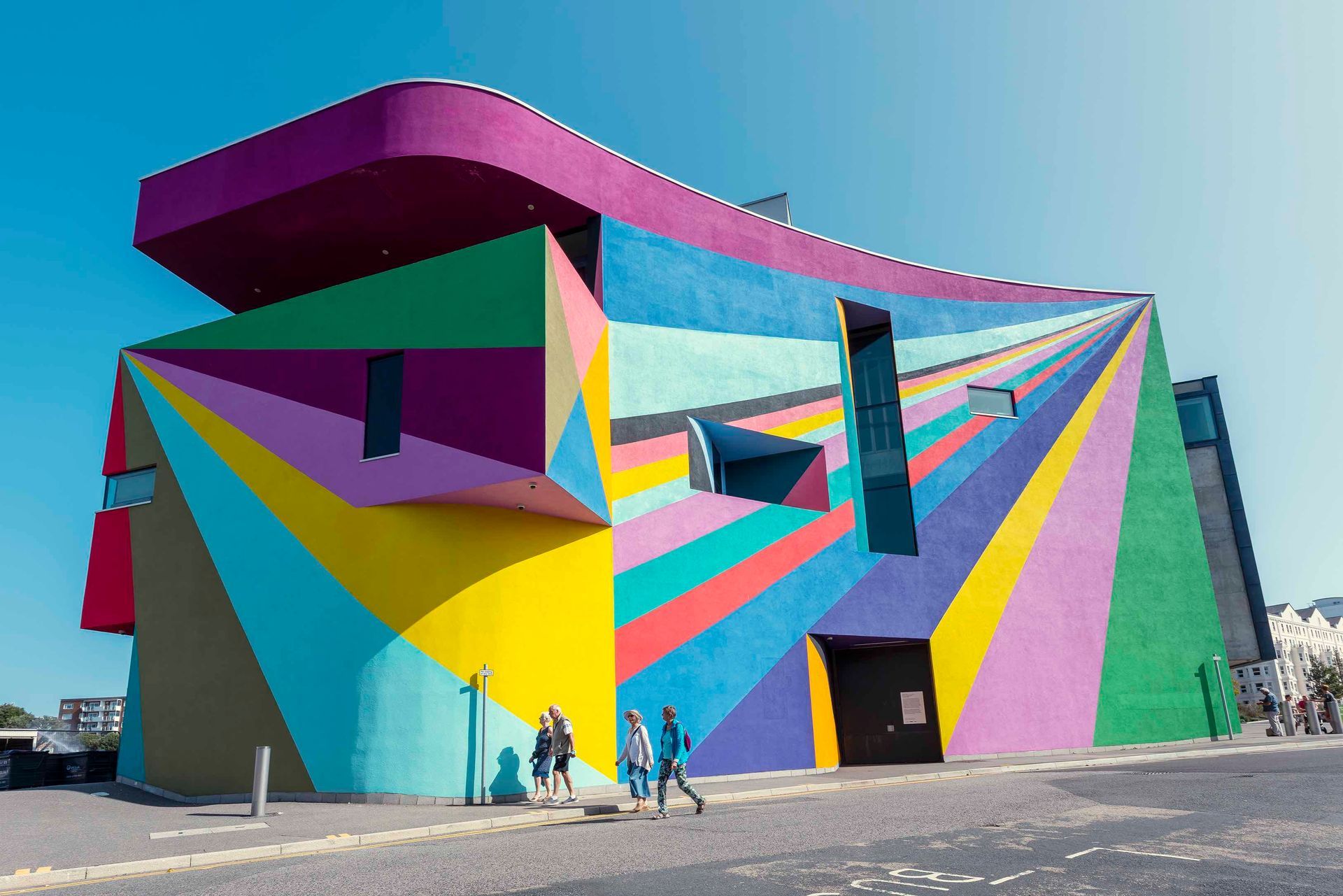
Vasily Klyukin, Dr. Tyfun Belgin ©Osthaus
Art Calendar, 17 January 2023
Vasily Klyukin, exceptional artist from Russia.
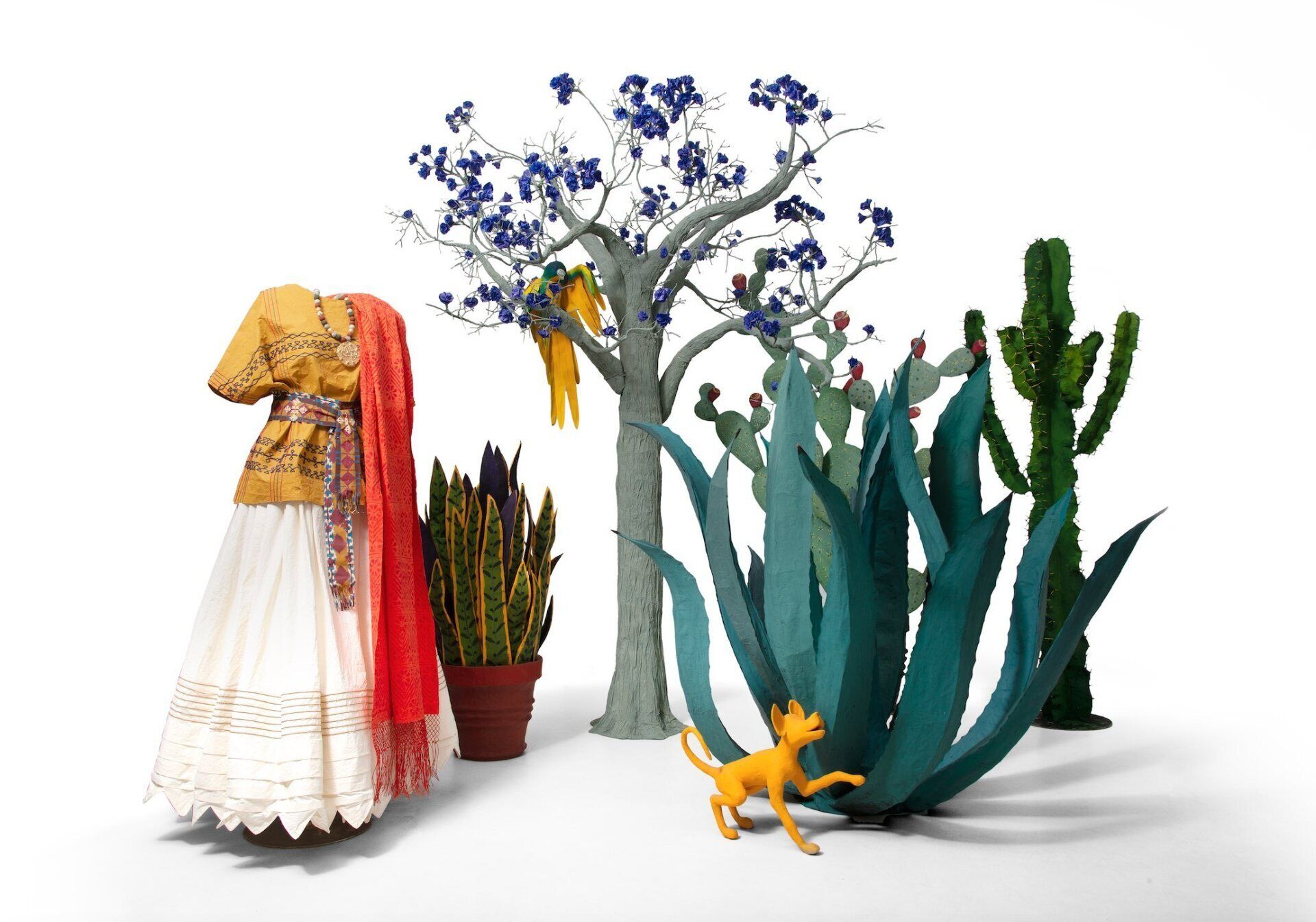
Isabelle de Borchgrave © Courtesy of the artist - Photo/Foto: Jean-Pierre GABRIEL
Art Calendar, 8 November 2022
Miradas de Mujeres, Isabelle de Borchgrave X Frida Kahlo. Paper of dreams and freedom. An exclusive interview. Royal Museums of Fine Arts in Brussels. 14 October 2022 to 12 February 2023.
Kylie Minogue at Benchmark stand on ProWein 2023, Düsseldorf ©MHoch
Kylie Minogue at Prowein 2023. One of the many sensations at ProWein, the world's biggest wine fair, which ended yesterday, was the appearance of Kylie Minogue presenting her wine line. Read about Kylie's wine adventure in her own words.
"2022 was a hammer year" Traditional New Year's reception of the Die Familienunternehmer with one of Germany's currently most interesting politicians, Alexander Graf Lambsdorff.

©Leon Löwentraut by ©Adrian Bedoy
Art Calendar, February 7, 2023
Leon Löwentraut's Volar, Deutsche Welle. Last night, German art star Leon Löwentraut announced on Instagram that the shows staged around him and his art are now history.
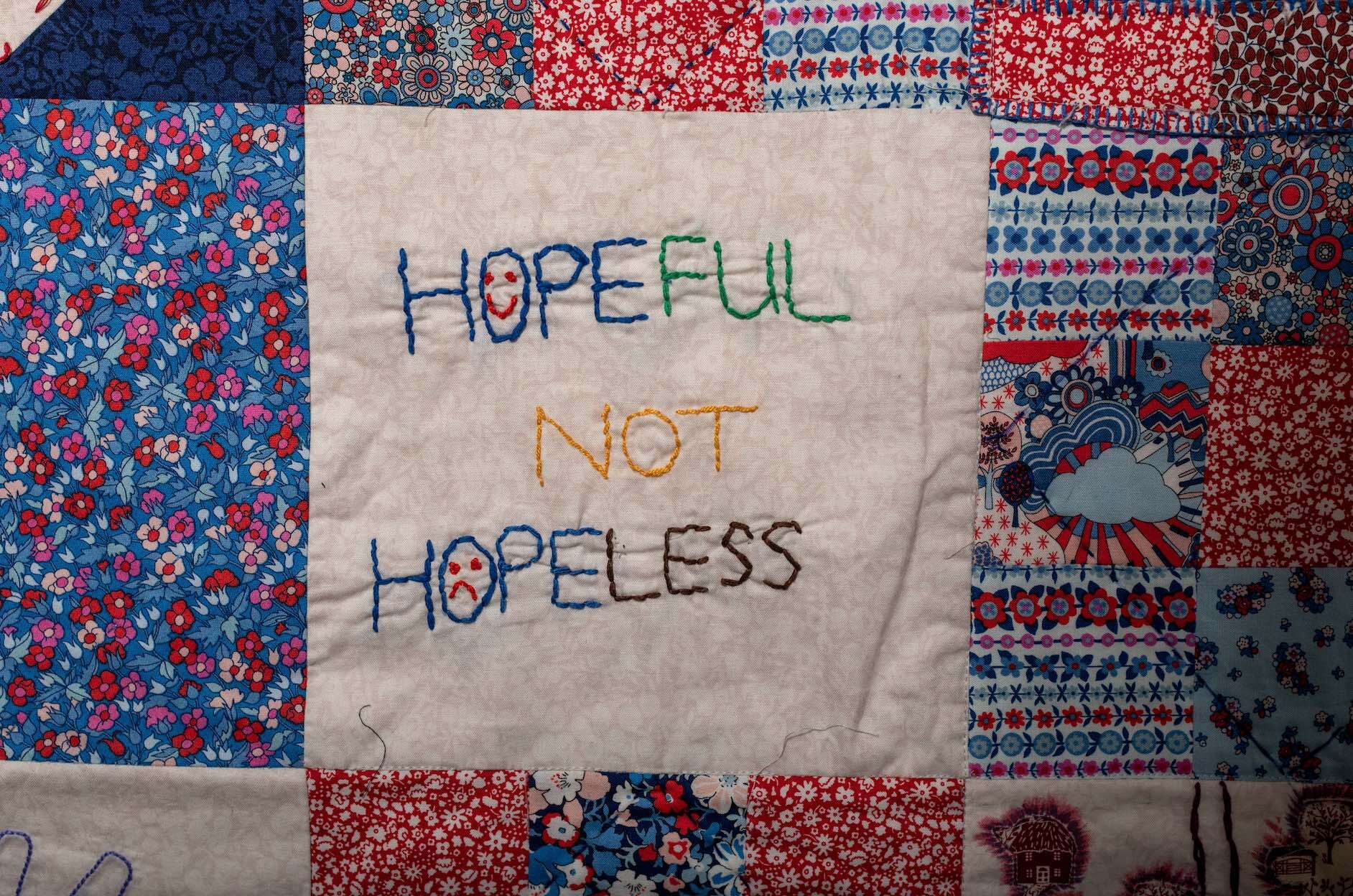
Freedom Quilt ©Sophie Hayes Foundation
©Pete Carr
Art Calendar, December 29, 2022
CEO Red Godfrey-Sagoo:“Escape does not mean freedom, freedom comes from independence and independence comes for employability and education."
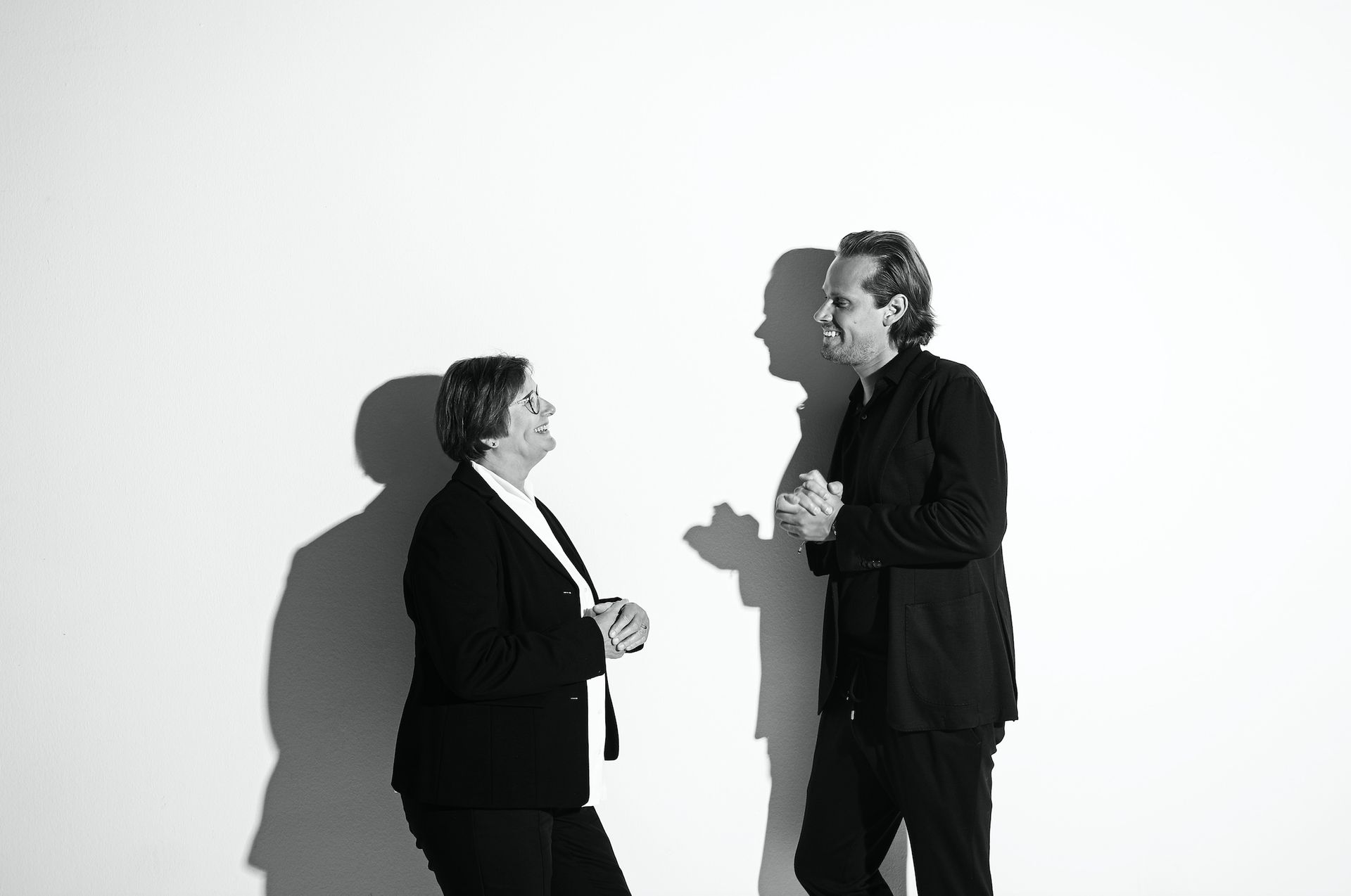
Heike and Malte Kappes "Everyone knows the Radschläger because of the big sculptures in the city. We would like to become the city brand."
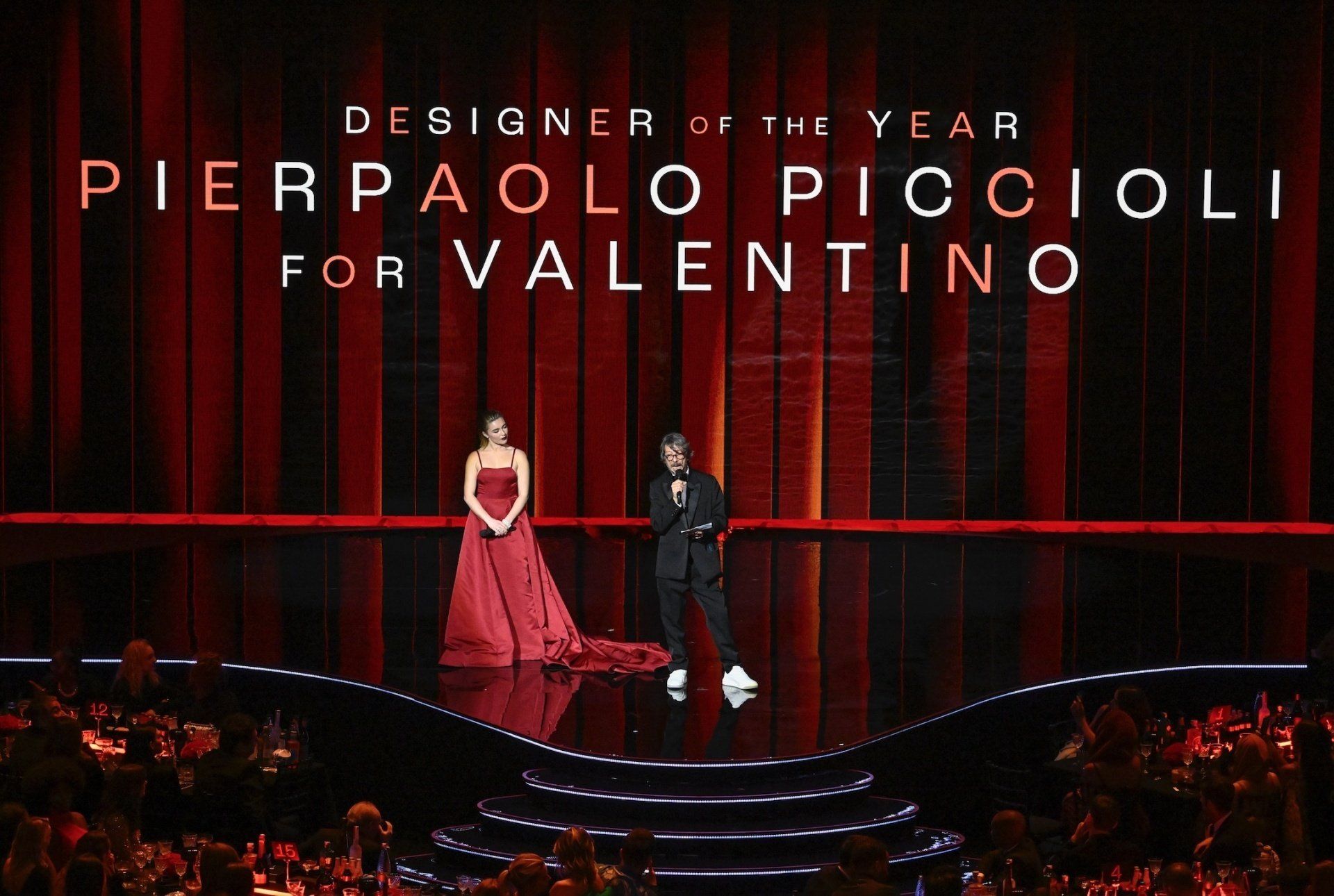
Credit: British Fashion Council ©MaisonValentino
Fashion 6 December 2022
British Fashion Awards Designer of the year, Pierpaolo Piccioli, Maison Valentino The most beautiful pictures of the evening. 6 December 2022.


Travel, June 4, 2022
Hotelier Francesco Cavallo "Cooking is a way of expressing thoughts, love and creativity."


©Justin Paquay
Art Calendar, 5 December 2022
Marta Ortega Pérez Foundation "Steven Meisel 1993 A Year in Photographs en A Coruña". Until 1 May.








